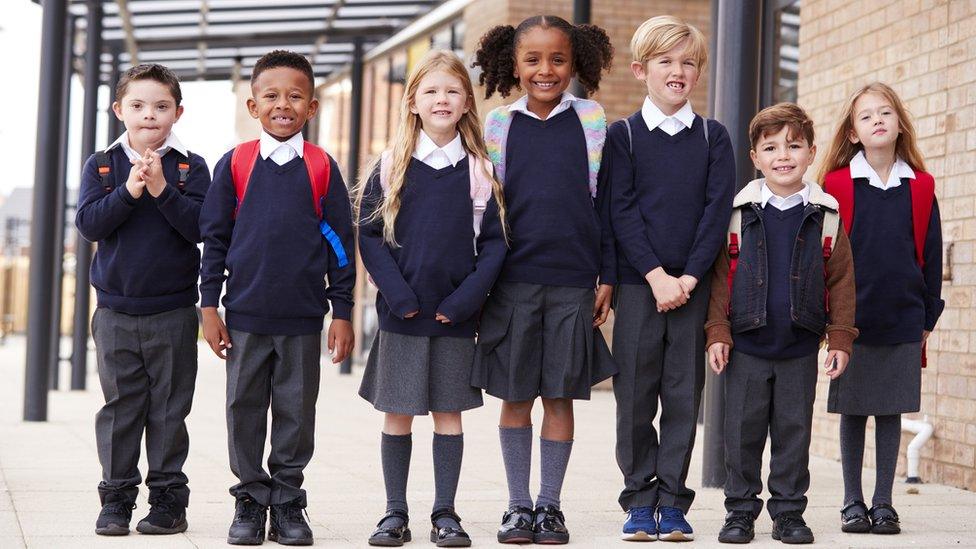Coronavirus: Winter plan to tackle the virus announced
- Published
- comments
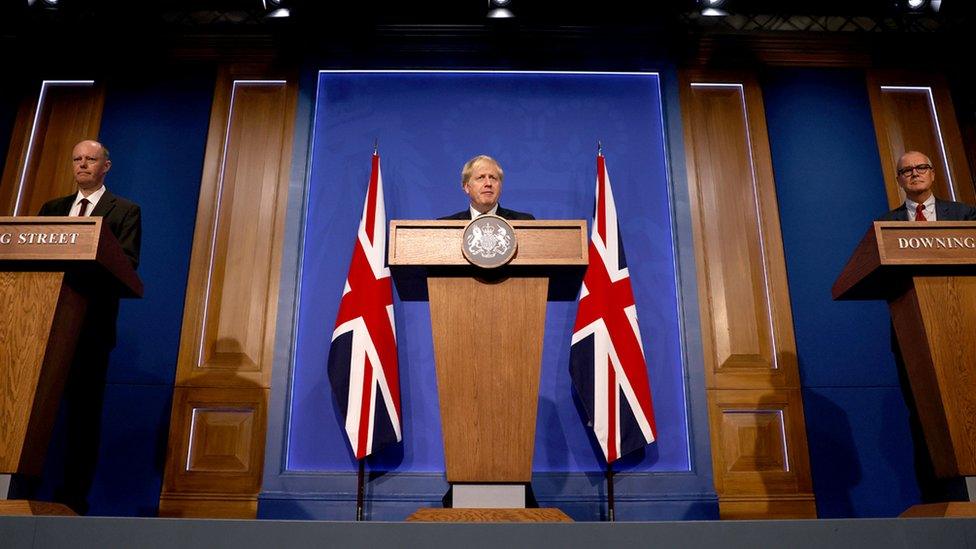
Boris Johnson has explained the government's plan for managing coronavirus in England during the autumn and winter months.
The measures are part of the government's plan to 'protect the most vulnerable' during a time when other viruses like colds and flu can thrive too.
The Prime Minister said that while Covid remains a risk, the UK is in a good position to tackle the disease, thanks to the Covid vaccine.
The announcement outlined a "Plan A" - giving more vaccines and continuing testing - and if it is needed a "Plan B" - with more measures to control the virus, including face masks and adults working from home.
The first details came from Health Secretary, Sajid Javid in the House of Commons, and later the Prime Minister added more in a news conference.
The Prime Minister said: "Smaller changes can make a bigger difference."
"We are confident in the vaccines that have made such a difference to our lives," Mr Johnson added.
What is the government's 'Plan A'?
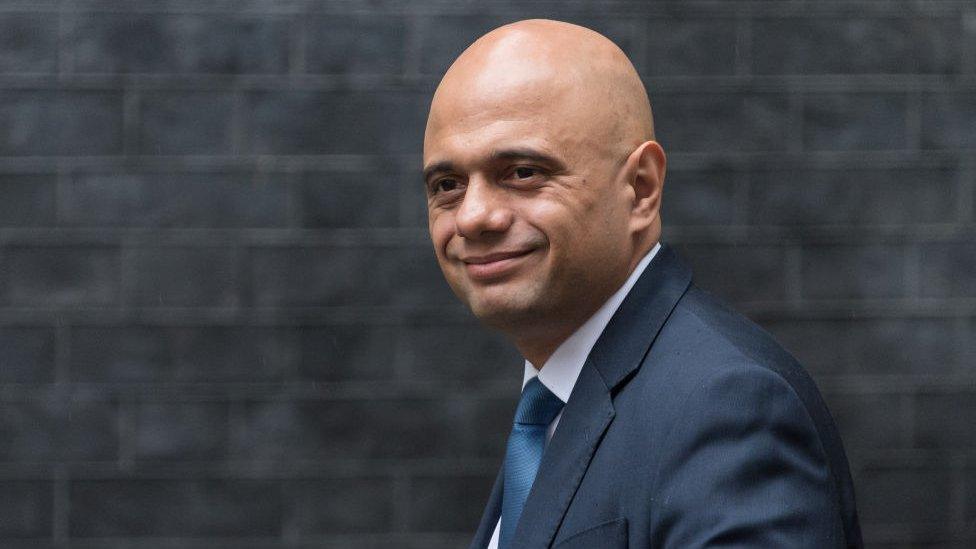
Health Secretary Sajid Javid outlined a 'Plan A' and 'Plan B' option for dealing with coronavirus
Plan A details what the government plan to do as we head into the colder months in England.
They have said they will:
encourage people who have not yet had their vaccine to get it
offer vaccines to 12 to 15-year-olds across the UK
give the most at risk and clinically vulnerable a booster jab, to offer them increased protection
Scotland, Northern Ireland and Wales are following with similar plans that will see booster jabs offered to people aged over 50, people who are clinically vulnerable, those in care homes and frontline health and social care workers.
Ministers also want to continue the testing and tracing of cases and want people who catch the virus to self-isolate, or stay at home, to keep others safe.
Clinically vulnerable means those who are at greater risk of becoming seriously ill or needing hospital treatment with coronavirus - usually because of an underlying medical condition.
What is the government's 'Plan B'?
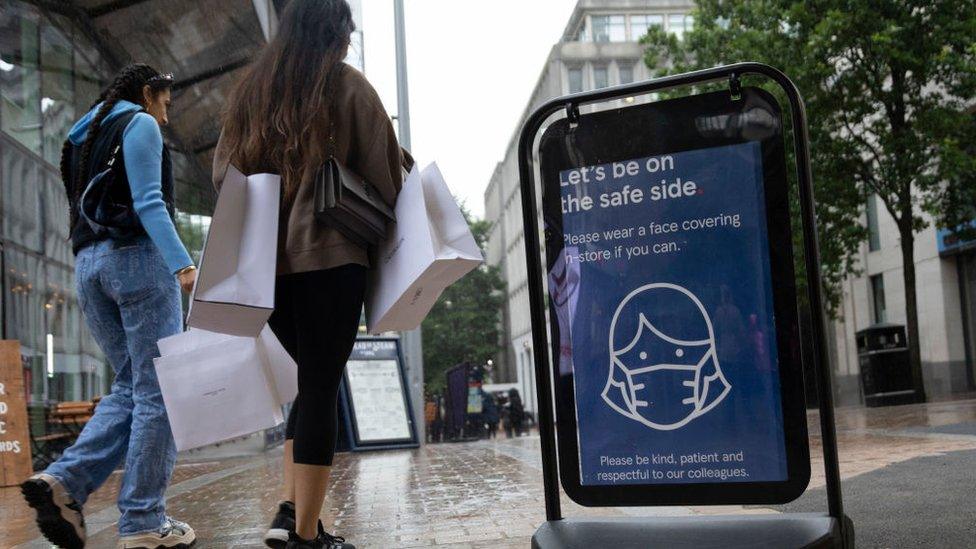
If the measures in 'Plan A' are not controlling the number of cases of Covid in England, the government said that 'Plan B' might be needed.
"Any responsible government must prepare for all eventualities," Mr Javid told MPs.
The additional 'Plan B' measures could include:
the public being asked to act more carefully
vaccine passports - proof that someone has been vaccinated - possibly needed for big events or gatherings
face coverings becoming mandatory again in enclosed spaces
a return of adults being asked to work from home
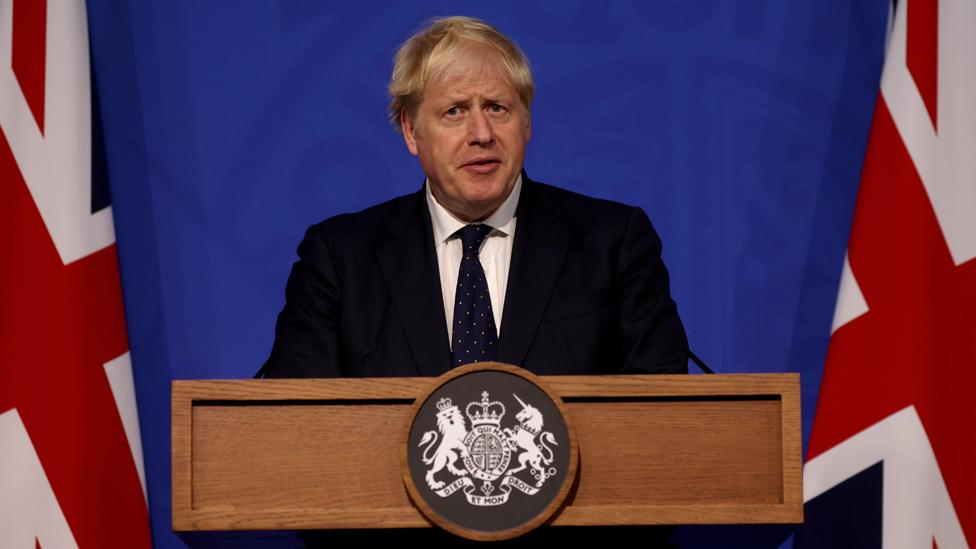
The Prime Minister Boris Johnson said he wants to avoid lockdowns, but nothing is ruled out
"We will keep further measures in reserve," Boris Johnson said, before adding: "It would not be sensible to rule out these kind of options."
The government will keep the public updated, he says, but he is "confident" the UK can proceed with 'Plan A' at the moment.
Why have the government made a plan for winter?
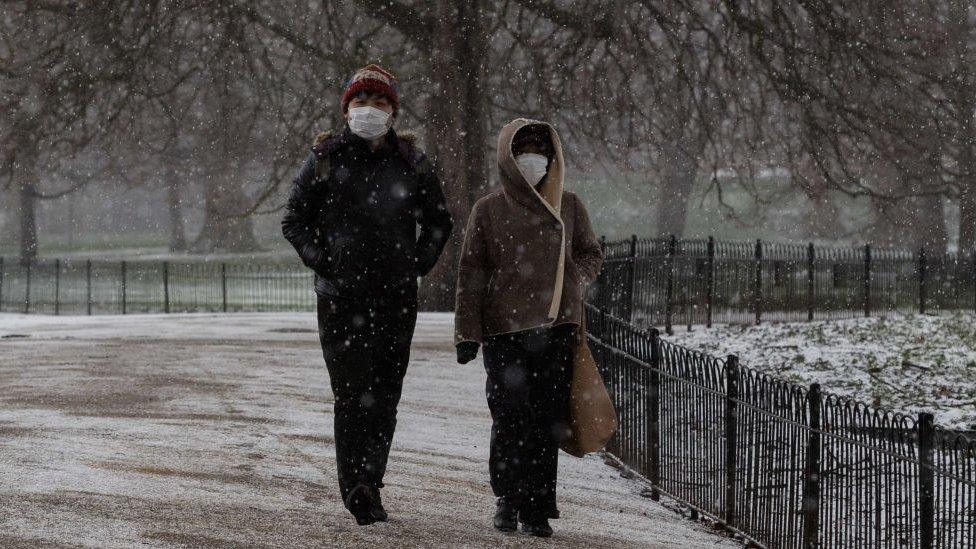
Coronaviruses, like Covid-19, tend to spread more easily in the colder conditions.
This is because during summer, UV light from the Sun causes the virus to die faster, limiting the disease's ability to spread.
In winter, when there is less sunshine, viruses can live for longer and can be passed on more easily.
In the colder weather people also like to stay warm indoors - this makes it easier for the virus to spread between people as they mix indoors, rather than outside.
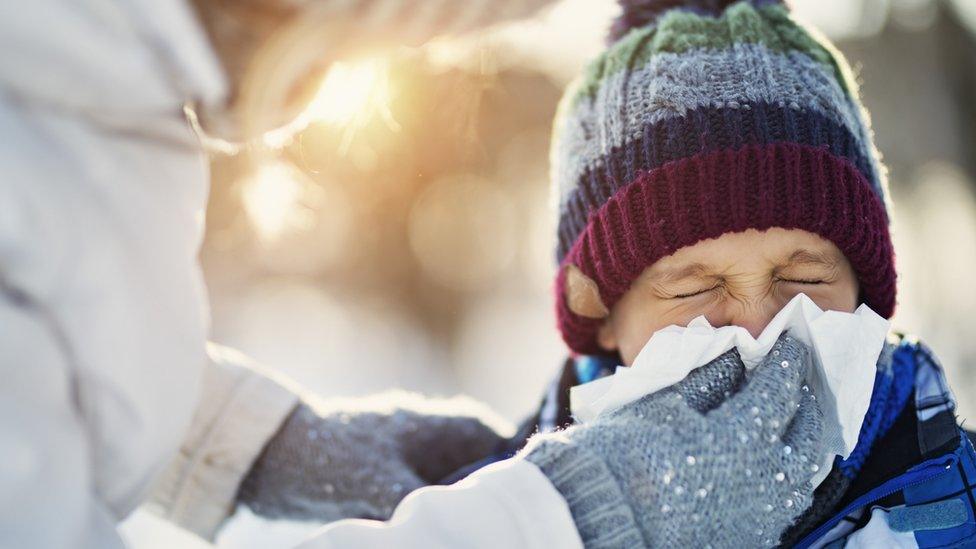
There are also concerns that because many people stayed apart for long periods last year, other viruses, like the flu, could make older people unwell as they have developed less natural immunity to them.
People who normally have a flu vaccine - those who are most at risk - and are able to have a coronavirus vaccine are being told that they can have both jabs at the same time.
- Published13 September 2021
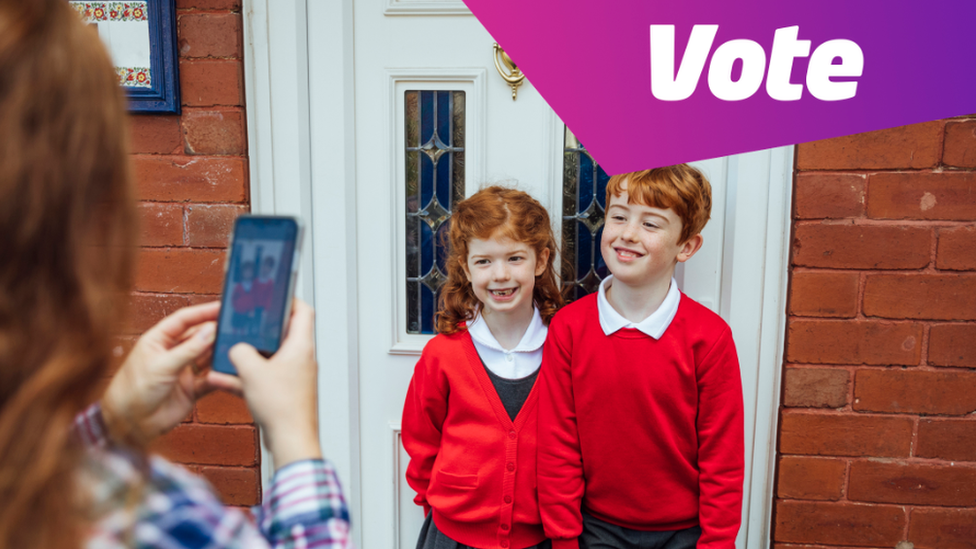
- Published9 September 2021
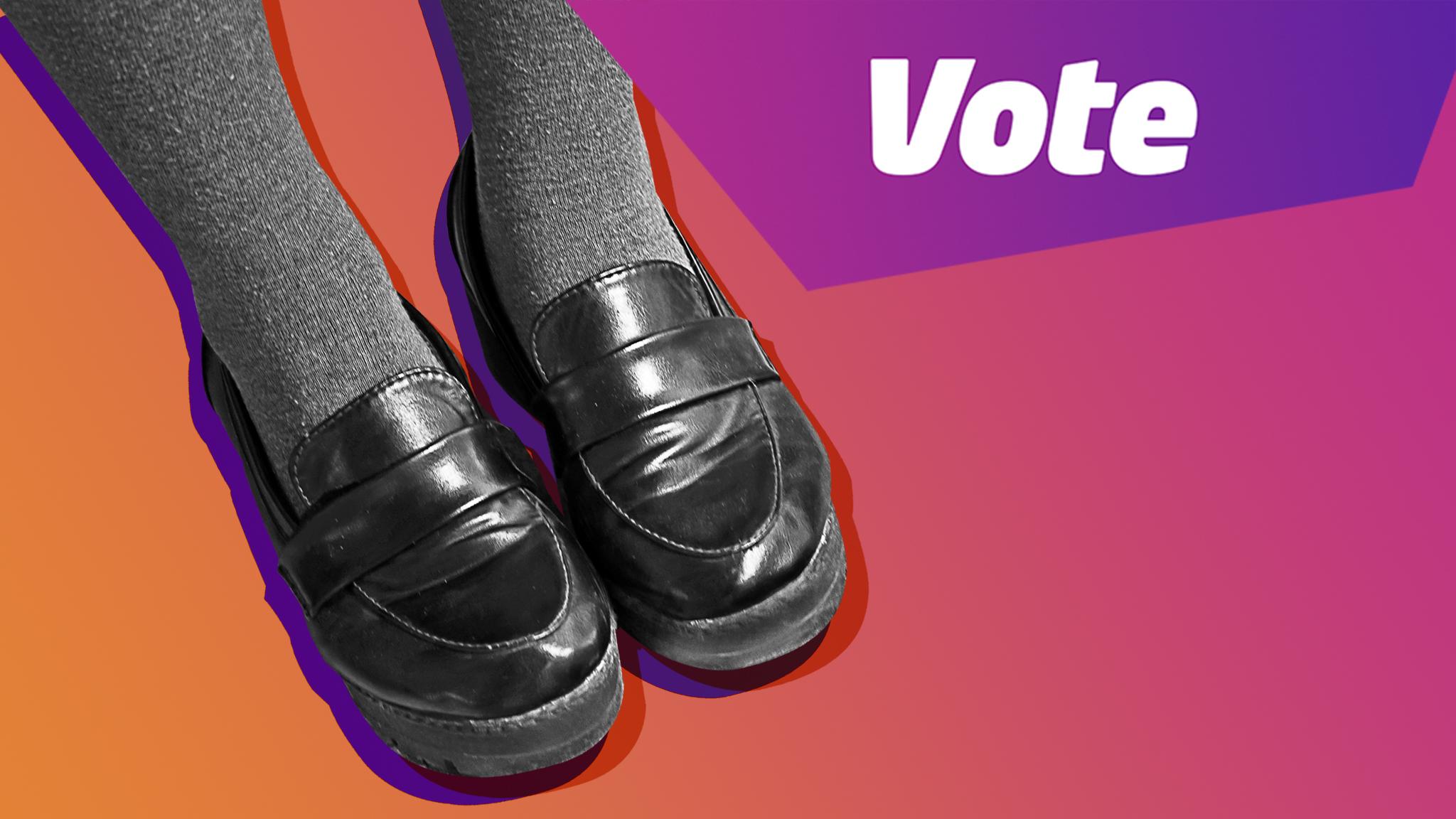
- Published3 September 2021
